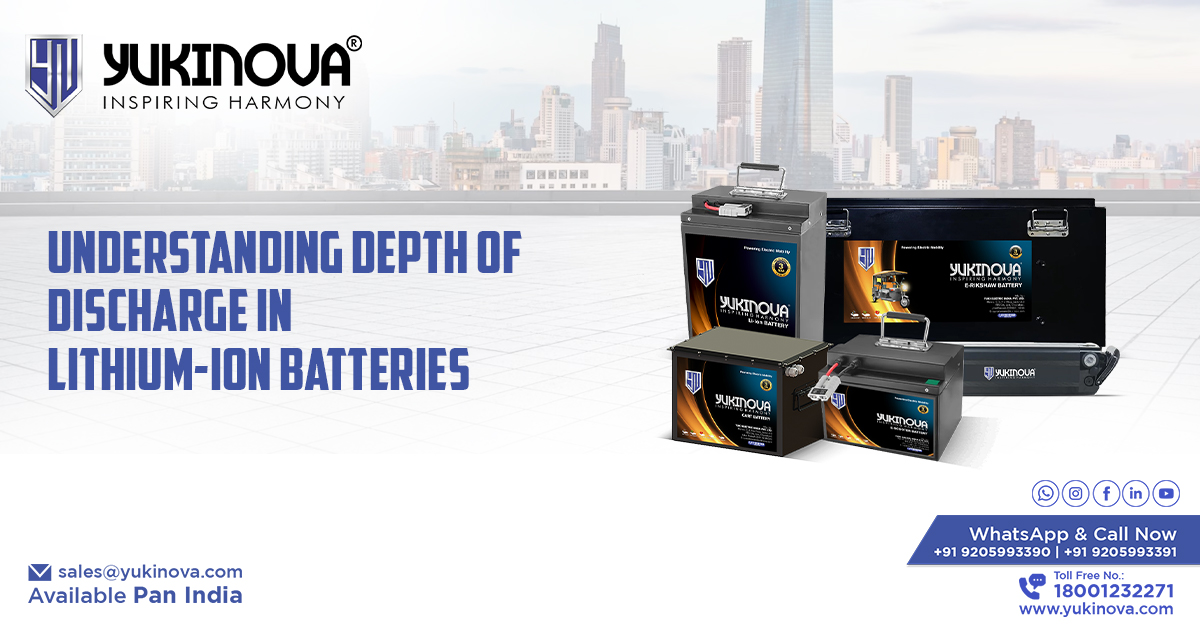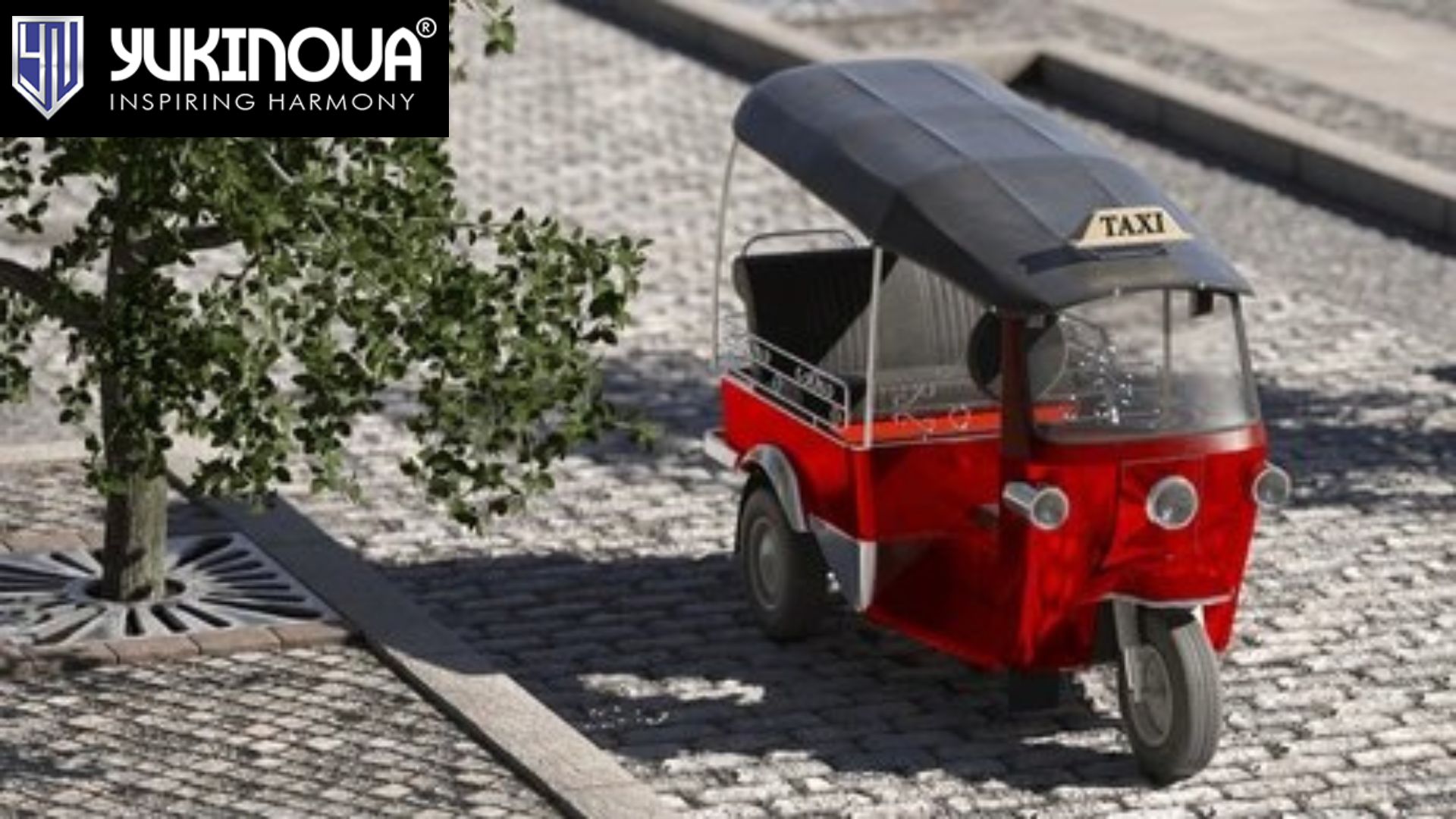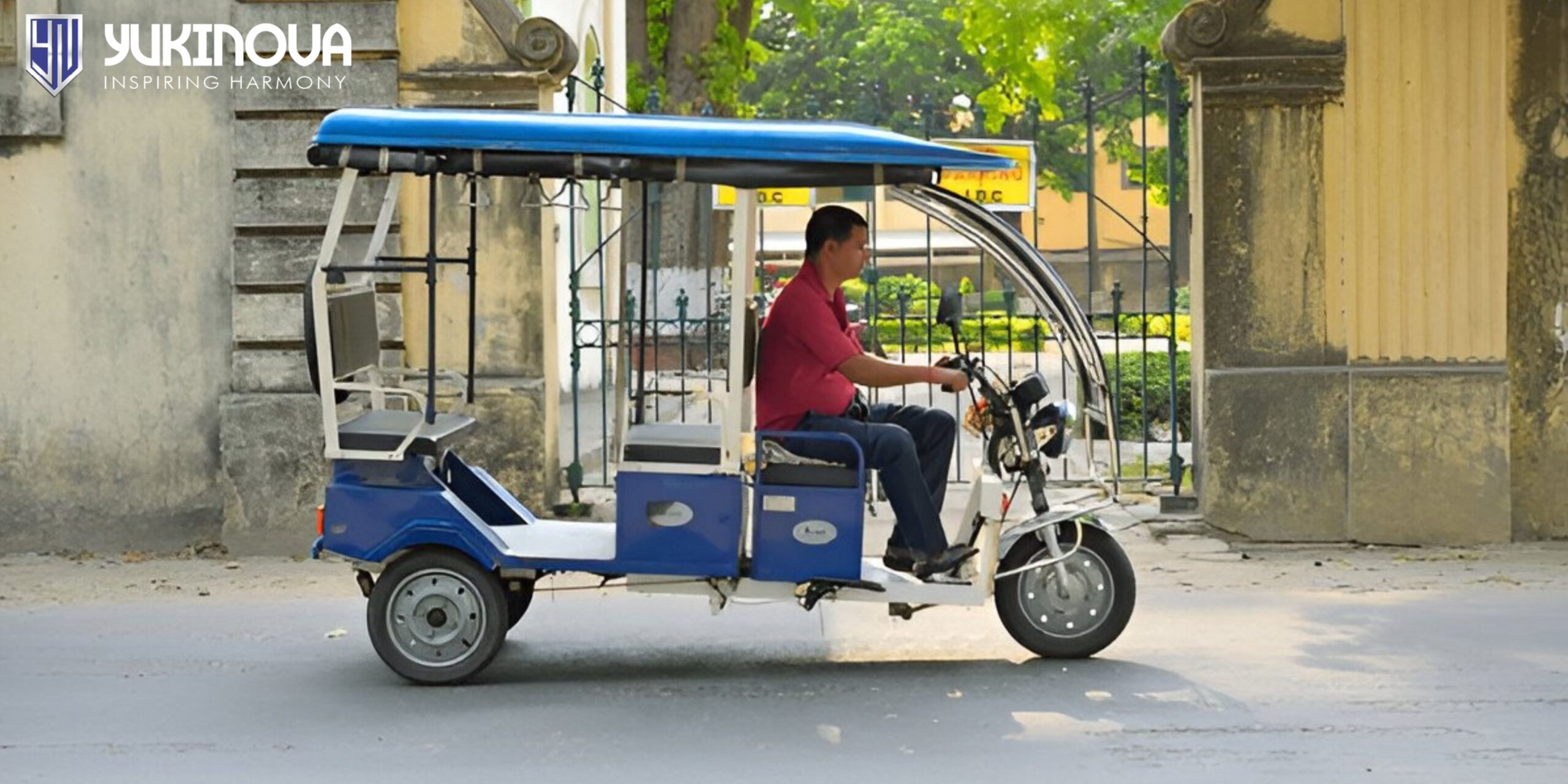The rise of electric vehicles (EVs) has transformed the transportation industry, and three-wheelers are no exception. As the demand for sustainable mobility increases, the need for reliable and high-performance batteries has become critical. Traditional lead-acid batteries are gradually being replaced by lithium-ion batteries, known for their efficiency, longevity, and low maintenance.
Among the top names in the industry, Yukinova has established itself as a trusted Lithium-Ion Three-Wheeler Battery Manufacturer, offering advanced energy solutions that power electric three-wheelers with unmatched performance. Whether for passenger e-rickshaws, cargo vehicles, or last-mile delivery services, Yukinova’s lithium-ion batteries provide the durability and efficiency required for modern electric mobility.
Why Lithium-Ion Batteries for Three-Wheelers?
Lithium-ion batteries have revolutionized the electric vehicle market due to their numerous advantages over traditional batteries. One of the key benefits is their higher energy density, which allows three-wheelers to travel longer distances on a single charge. This makes them ideal for urban and semi-urban transportation, where frequent charging is not always feasible.
Another major advantage is faster charging time. Unlike lead-acid batteries that take hours to charge, lithium-ion batteries can be charged quickly, reducing downtime and increasing vehicle productivity. This is particularly beneficial for commercial three-wheelers that operate throughout the day and require quick recharging for continuous operations.
Low maintenance is another factor that makes lithium-ion batteries superior. Unlike conventional batteries that require regular water top-ups and maintenance checks, lithium-ion batteries are sealed and maintenance-free, ensuring hassle-free usage and reducing overall operational costs.
Yukinova: Redefining Lithium-Ion Battery Manufacturing for Three-Wheelers
As a leading Lithium-Ion Three-Wheeler Battery Manufacturer, Yukinova focuses on developing advanced battery solutions that meet the growing demands of electric mobility. The company’s batteries are designed with cutting-edge technology to offer high efficiency, durability, and superior performance.
One of the standout features of Yukinova’s lithium-ion batteries is their longer lifespan. Compared to lead-acid batteries, which typically last 2-3 years, lithium-ion batteries can last up to 5-7 years, making them a cost-effective investment in the long run. The higher initial cost is offset by lower replacement frequency and reduced maintenance expenses.
Enhanced safety features are another highlight of Yukinova’s batteries. Built-in Battery Management Systems (BMS) ensure protection against overcharging, overheating, and deep discharging, making them a reliable choice for three-wheeler applications.
The Role of Lithium-Ion Batteries in the Electric Three-Wheeler Industry
Electric three-wheelers have become a preferred mode of transport in many cities due to their zero-emission capabilities and lower operating costs. Whether used for passenger transport or cargo delivery, these vehicles require batteries that provide consistent power, quick charging, and long-lasting performance.
Yukinova’s lithium-ion three-wheeler batteries play a crucial role in supporting this transition to green mobility. Their high energy efficiency ensures that electric three-wheelers can cover more distance per charge, reducing dependency on frequent recharges. This is particularly beneficial for commercial fleets and public transport vehicles, where uptime is crucial for profitability.
Why Choose Yukinova’s Lithium-Ion Batteries?
Yukinova’s reputation as a trusted lithium-ion three-wheeler battery manufacturer is built on its commitment to innovation and quality. The company’s batteries offer several advantages that set them apart from conventional options.
The lightweight design ensures better vehicle efficiency, reducing overall weight and improving speed and mileage. This is particularly important for three-wheelers that need to balance power and efficiency for optimal performance.
Advanced thermal management systems keep the battery temperature regulated, preventing overheating and ensuring longer battery life. This feature enhances safety and makes Yukinova’s batteries ideal for use in extreme weather conditions.
Fast-charging capabilities allow users to recharge their vehicles quickly, increasing productivity for commercial applications. Whether used in passenger transport or delivery services, reduced downtime translates to better profitability and operational efficiency.
Future of Lithium-Ion Batteries in Three-Wheelers
As governments push for cleaner mobility solutions, the demand for lithium-ion batteries in the three-wheeler segment is expected to grow significantly. Incentives, subsidies, and stricter emission norms are driving the adoption of electric three-wheelers, making high-quality batteries essential for sustainable transportation.
Yukinova continues to invest in research and development, ensuring that its lithium-ion batteries remain at the forefront of technological advancements. By focusing on energy efficiency, reliability, and affordability, the company aims to support the rapid electrification of three-wheelers and contribute to a greener future.
Conclusion
The shift towards electric mobility has increased the need for efficient and long-lasting power solutions, making lithium-ion batteries the preferred choice for three-wheelers. As a leading Lithium-Ion Three-Wheeler Battery Manufacturer, Yukinova delivers high-performance, durable, and eco-friendly battery solutions that cater to the evolving needs of the electric vehicle industry.
With superior energy efficiency, faster charging, extended lifespan, and enhanced safety, Yukinova’s lithium-ion batteries are powering the next generation of three-wheelers, driving the future of sustainable urban transport.









